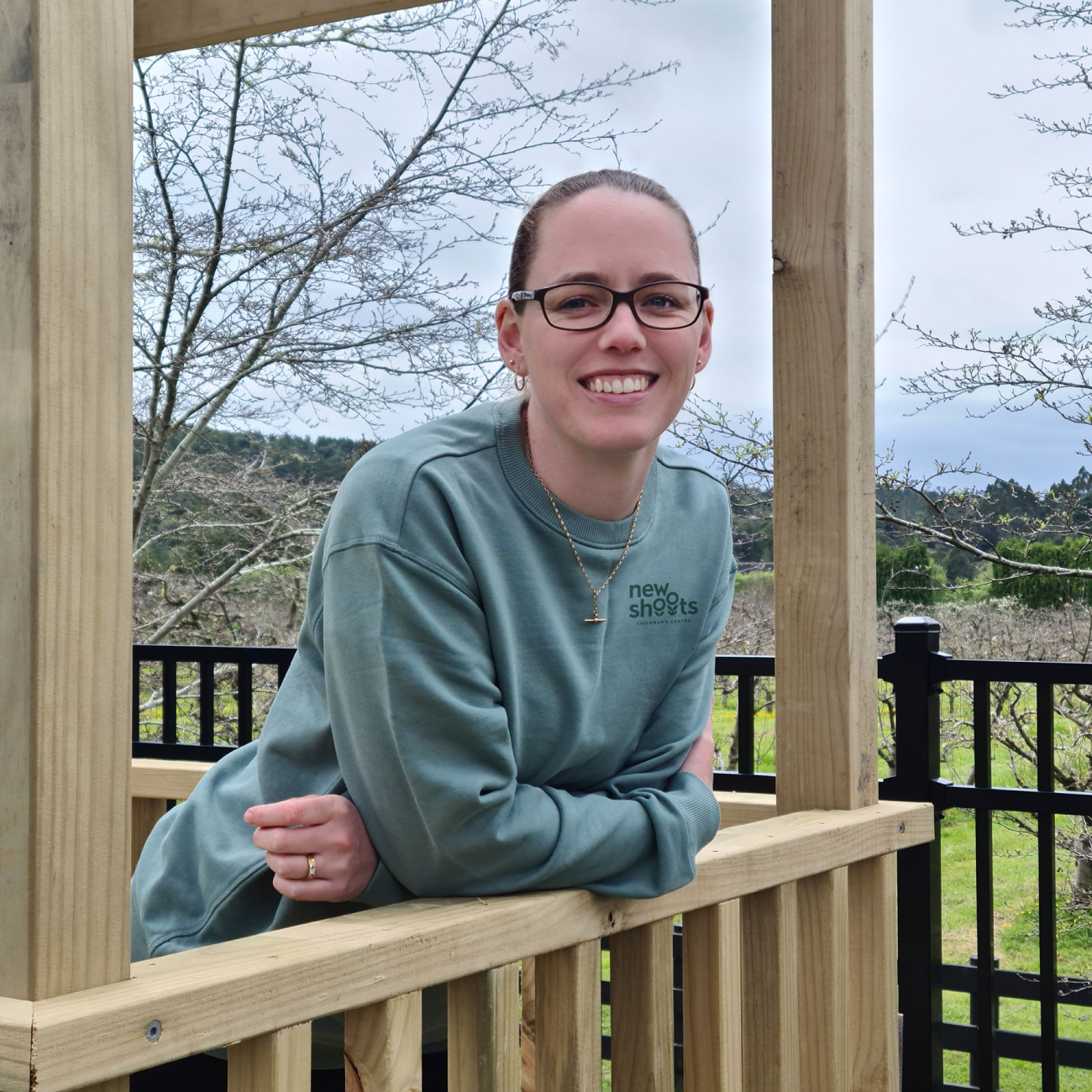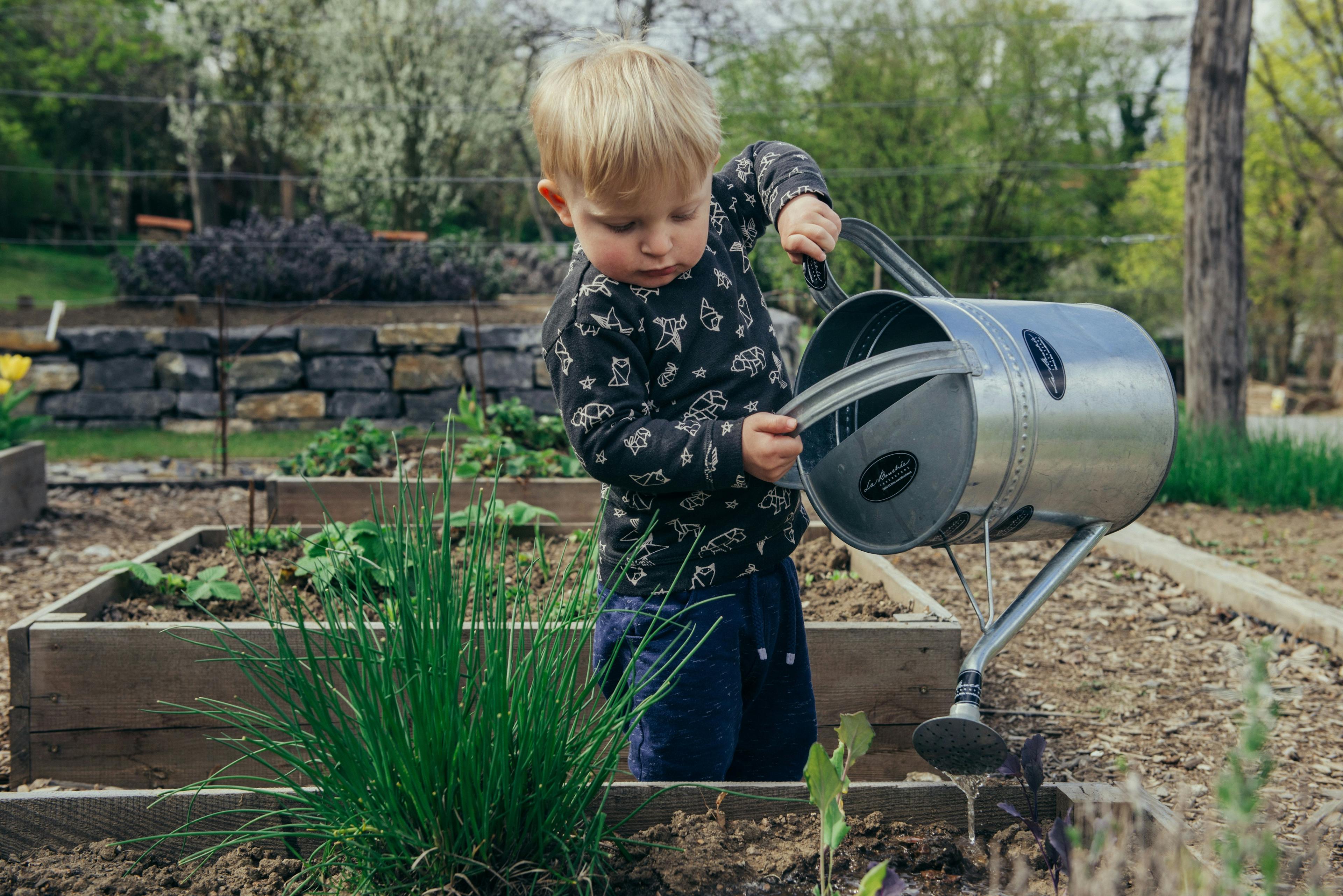Gardening Tips - Growing Kiwi Gardens
Anita of “Growing Kiwi Gardens” shares her tips on building children’s connections to nature with gardening.
Jessie PetersMarch 01, 2023
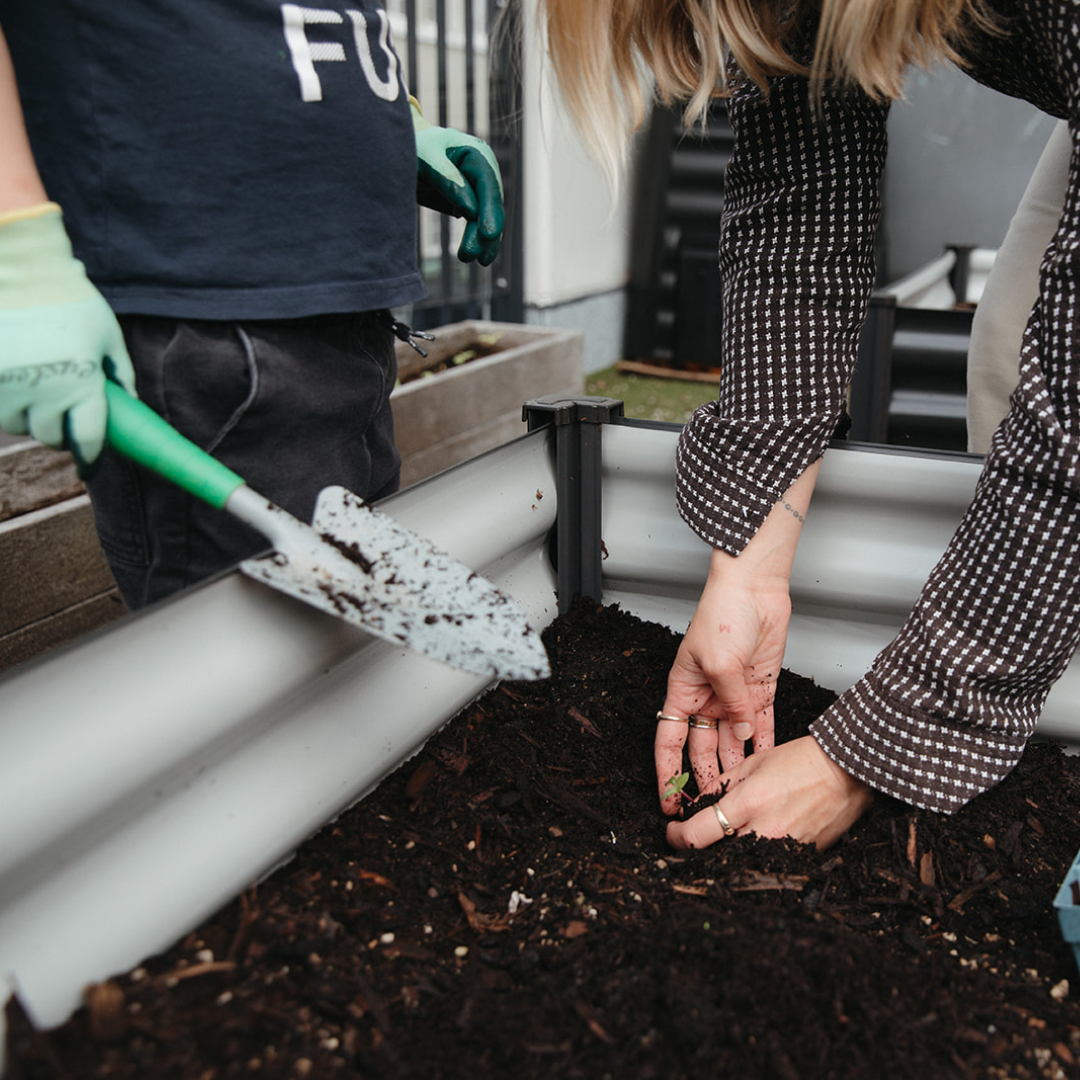
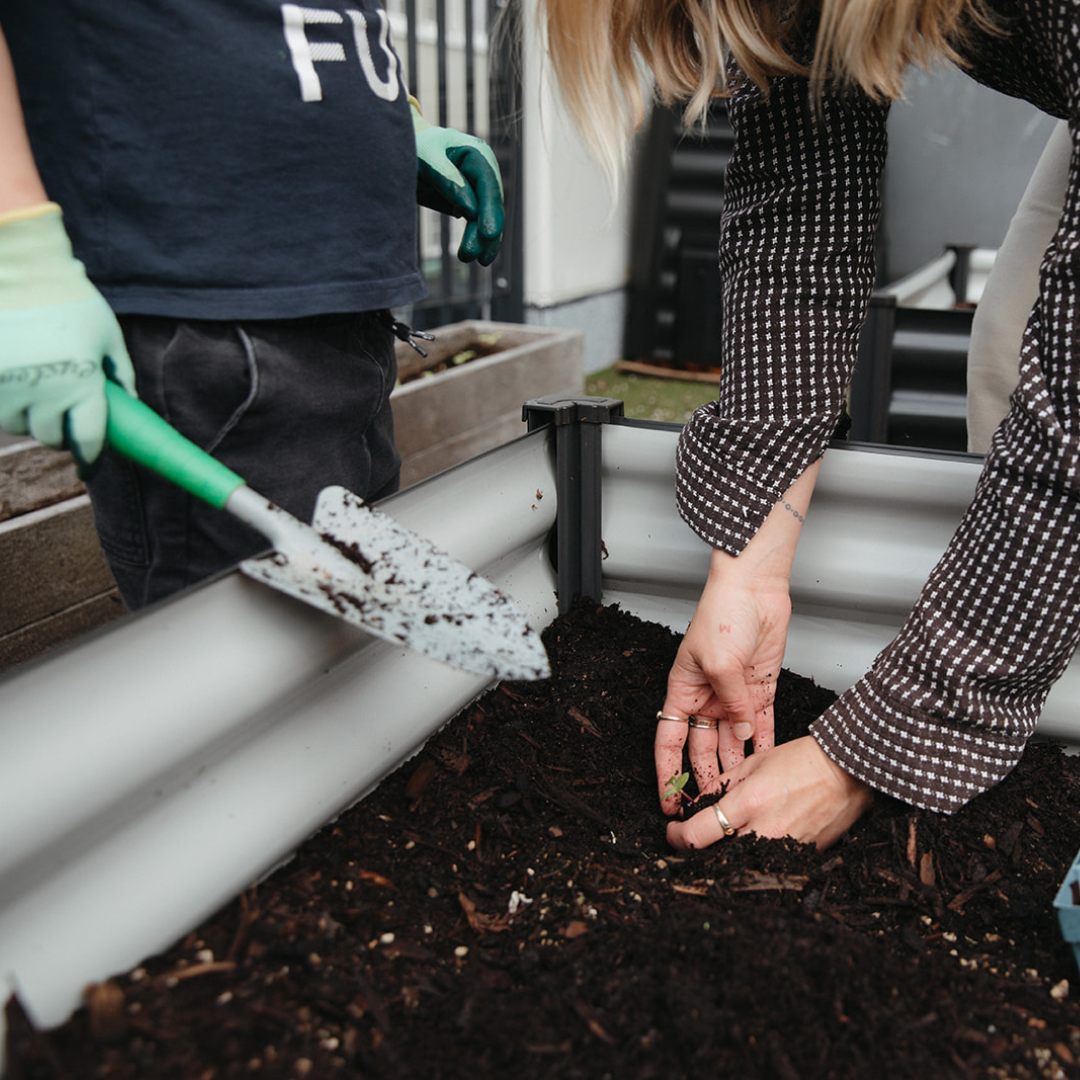
Build Children’s Connections to Nature with Gardening
I’m sure we can all agree that children benefit from spending time in nature. The natural world can give children instant responses to their curiosity through all their senses as they touch, taste, smell, see and hear what is going on around them. The more time they spend in nature, the more they connect to it. Such connections tend to foster an ethic of care for the natural environment and the life systems within it.
Engaging children in regular and on-going gardening experiences helps to build their connections to nature. The garden is a place for exploration and discovery and gives children hands-on access to the natural world. If there is a garden at home or in their centre, they don’t have to travel to experience it nature. It’s right there, waiting for our young scientists, mathematicians and linguists to explore and develop their own theories about how the natural world works and how humans can help.
When gardening, children become scientists as they learn how to care for the soil, make compost, or care for a worm farm. They observe the materials they add to the compost or worm farm decompose and develop theories about this process and why it is important to return it to the garden. They learn about the bugs, butterflies, insects, and worms that live and work in the soil and on the plants. They experience the wonder of sowing a seed, caring for it and watching it sprout and grow into a seedling. Then into a plant that produces food or flowers to enjoy.
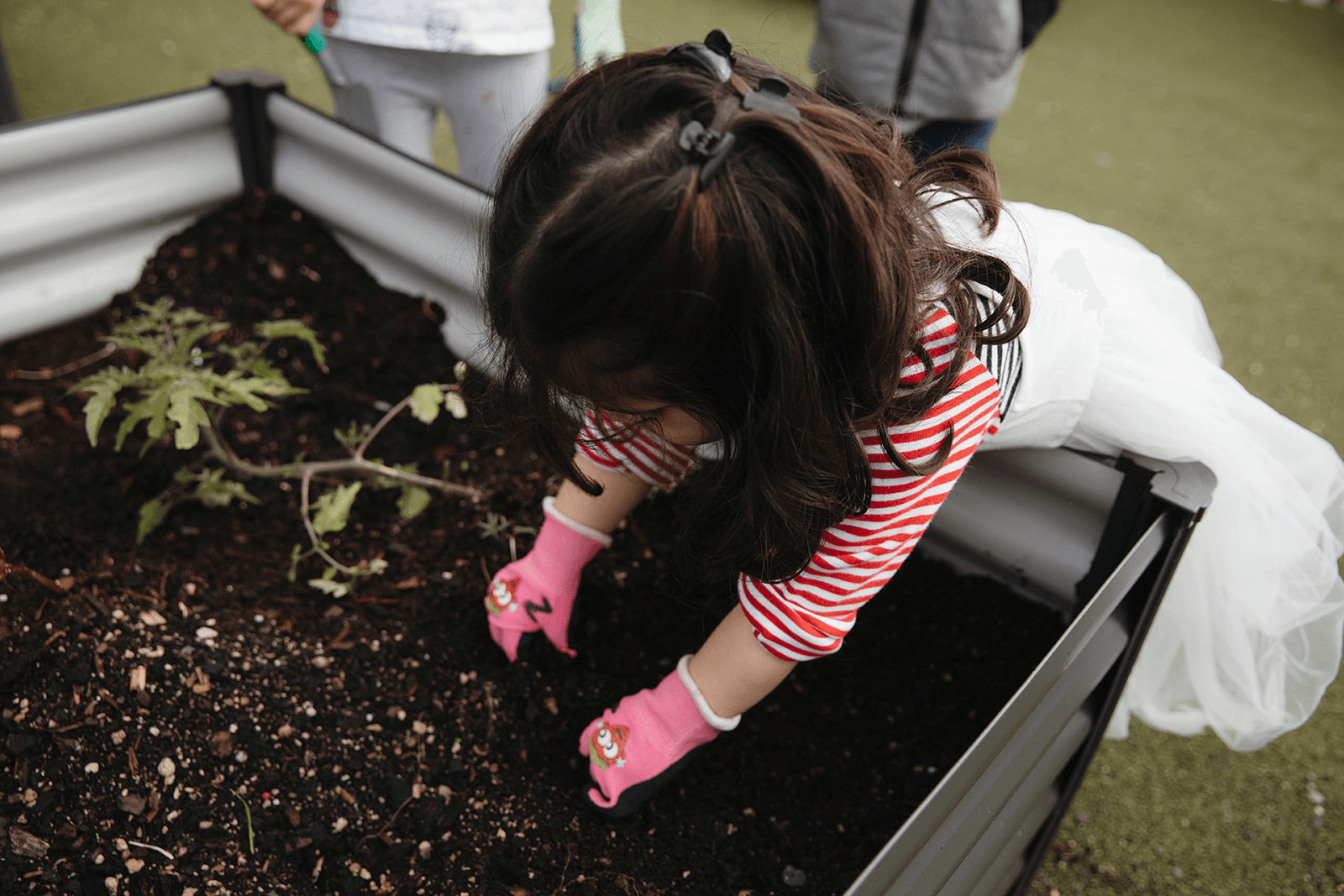
Gardening supports children to become mathematicians as they discover the different size and shapes of seeds. They count how many seeds they need to sow. They measure the distances between seedlings with they plant them, and the height as they grow. If they have a rain gauge, they can measure how much rain has fallen on their garden, so they know if they need to water their plants.
Working in the garden supports children’s linguist skills as they learn the language of gardening. They learn words such as root, soil, sprout, seed, seedling, compost, vermicast, trowel etc. And they recognise how written language is used to make signs to label plants, or record information in a diary related to their planting and harvesting.
British poet, Alfred Austin said, “The glory of gardening is hands in the dirt, head in the sun, heart with nature. To nurture a garden is to feed not just the body, but the soul.”
I’ve experienced gardening feeding the soul of the children I work with in a range of early childhood settings. I’ve been regularly gardening with pre-school children since 2018 and have noticed how being engaged in the hands-on act of gardening time and time again, provides young children with a sense of pride and pleasure.
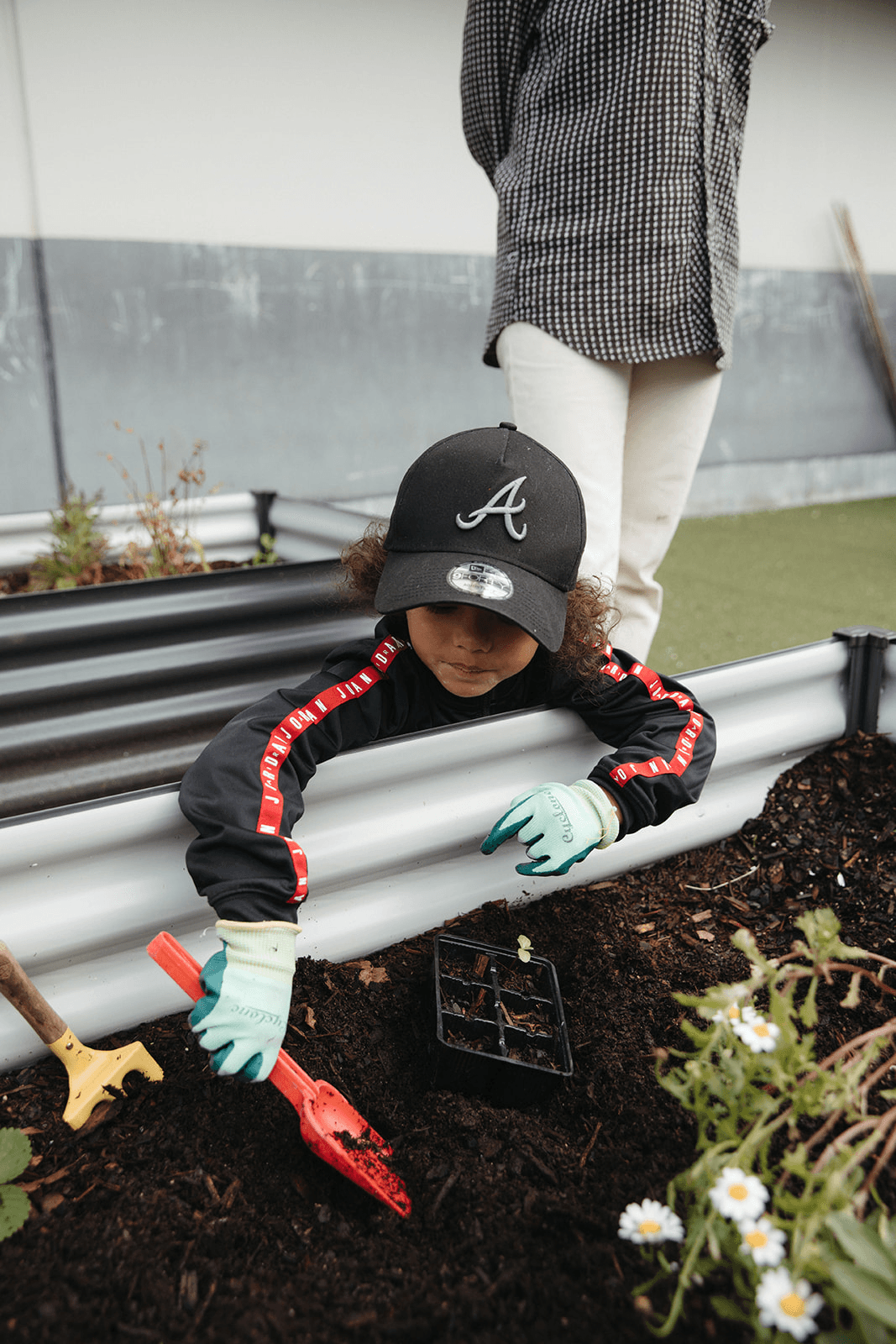
When I arrive, they are excited to see me, and they take me to the garden to show me what has grown in the time since I was there last. They tell me about what produce they have harvested. They have taken on leadership and ownership of the garden, often being the ones to remind their teachers’ that the garden needs to be watered and monitoring their peers to ensure they are not digging or pulling out plants.
I’ve noticed as I work with these groups of pre-schoolers that gardening helps them to regulate their own behaviour and learn about rules and boundaries. When they are engaged fully in the process of gardening, they are less likely to be disruptive. I often work with children, who struggle in other situations, become calm and focused when they are working in the garden. They learn to take responsibility for the care of their garden and show a sense of achievement at what they have done.
In an early childhood setting, gardening involves working with their peers. This often means there will be turn-taking and sharing if the space is small, or there are not enough tools for everyone to use at the same time. However, I have found that even those children who struggle with these social competencies will wait and take turns when they garden. And friendships have been fostered as they work together and develop a shared interest in gardening.
The very act of working in the garden provides a sense of calm. There is a reason why gardening is one of the activities listed to help serve our mental health. Scientists have discovered microbes that live in the soil that are antidepressants (Mycobacterium vaccae). These microbes have been found to lower stress and improve concentration.
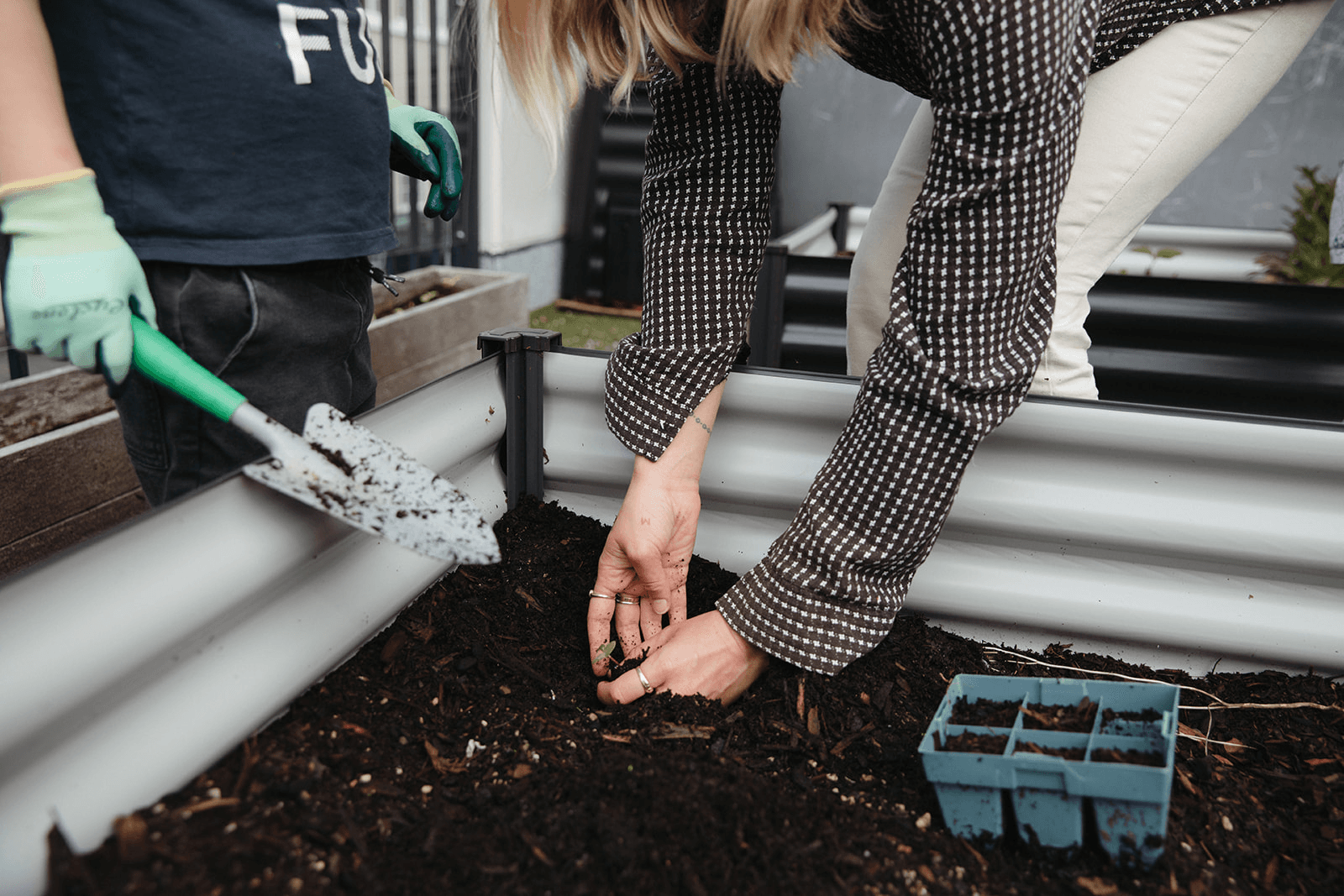
So, digging, watering, planting, weeding, fertilising and harvesting is not only satisfying to provide food and flowers, it also helps to relieve stress levels. Getting our hands busy, working in the garden is touching and experiencing nature, and it is calming.
As nature slowly unfolds its magic of sprouting seeds and growing plants in the garden, our children learn patience. Patience as they wait for that seed to germinate, patience as they wait for the seedling to grow, patience as they wait for the flowers or vegetables to mature. Even patience as they wait for their turn with the tools. And with that patience comes the sense of achievement at each stage of the process, knowing they had a hand in caring for a living thing.
Through the simple act of engaging children in gardening on a regular basis we are opening up a world that connects them to nature, enhances their well-being and teaches them to respect and care for themselves and others. Alfred Austin was right. Gardening does feed both the body and the soul.
